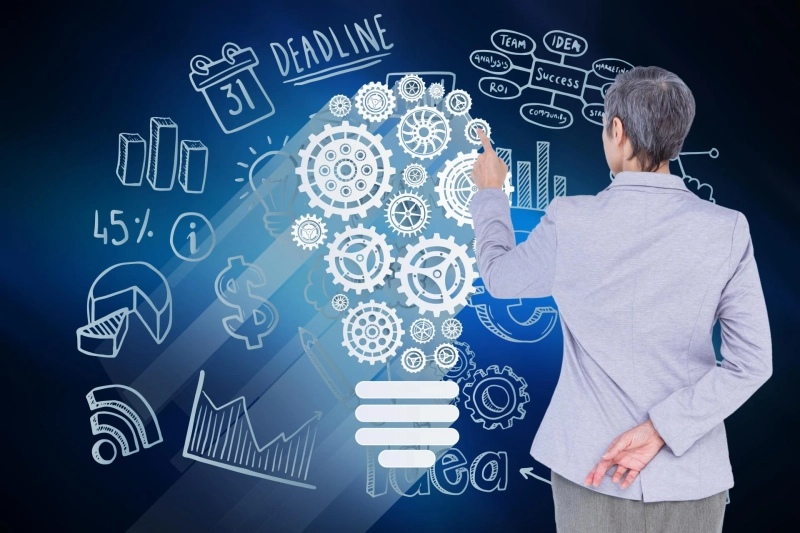Introduction: The Role of AI in Modern Learning
Artificial intelligence (AI) is transforming industries, and education is no exception. From personalised learning to automated assessments, AI is revolutionising how we acquire knowledge. Learning Experience Platforms (LXPs) are leading this change, offering advanced AI-driven education solutions tailored to individual learning needs.
Traditional learning systems often provide a one-size-fits-all approach, but AI-powered adaptive learning systems are changing this by offering personalised learning pathways. Whether in corporate training, higher education, or professional development, AI integration in LXPs is shaping the future of learning.
In this article, we’ll explore how AI is enhancing Learning Experience Platforms, the key benefits, and what the future holds for education in the digital era.
The Rise of AI in Learning Experience Platforms
1. AI-Driven Education: A Personalised Approach
One of the biggest challenges in education is catering to individual learning speeds and styles. AI enables LXPs to deliver personalised learning pathways by analysing learner behaviour and recommending content based on progress, preferences, and performance.
For example, AI-based intelligent tutoring systems can identify weak areas and suggest relevant study materials, ensuring that each learner receives a unique learning journey.
2. Adaptive Learning Systems: Real-Time Adjustments
AI-powered adaptive learning systems use machine learning in education to track student progress and modify the curriculum in real time. These systems ensure that learners stay engaged by dynamically adjusting difficulty levels and content recommendations.
This means that an employee in a corporate training programme or a student in an online university course can receive a fully customised learning experience without the need for human intervention.
3. AI-Powered Learning Analytics: Data-Driven Insights
Modern LXPs use AI-powered learning analytics to monitor learner engagement, progress, and knowledge retention. These analytics help educators and organisations refine their training strategies by providing:
- Real-time performance tracking
- Automated skill assessments
- Predictive learning insights
For example, companies using AI-driven LXPs can identify skill gaps within their workforce and offer targeted employee upskilling programmes, ensuring workforce skills development and career growth.
4. Virtual Learning Assistants: 24/7 Support
AI-powered virtual learning assistants act as digital tutors, answering queries, guiding learners, and providing AI-based content recommendations. These assistants use natural language processing in e-learning to interact with users in a human-like manner, improving accessibility and support.
With AI-powered chatbots, learners no longer need to wait for an instructor’s response—they can get instant answers, making the learning process smoother and more efficient.
5. Intelligent Tutoring Systems: Personalised Coaching
AI-based intelligent tutoring systems provide learners with one-on-one coaching by assessing their progress and tailoring exercises to reinforce weak areas. Unlike traditional e-learning platforms, these systems create a dynamic, engaging, and personalised learning environment.
For example, an AI tutor can detect that a learner is struggling with data analytics and automatically provide additional AI-driven education modules to improve their understanding.
The Future of AI in Learning Experience Platforms
6. AI-Based Content Recommendation: Smarter Learning Journeys
AI doesn’t just personalise the learning path—it also recommends the right content at the right time. AI-powered content recommendation engines analyse user behaviour, interests, and past interactions to suggest relevant learning materials.
This feature ensures that learners stay engaged and continuously build on their knowledge, whether they are students, employees, or lifelong learners.
7. Automated Skill Assessments: Measuring Progress Accurately
Traditional assessments can be time-consuming and often fail to measure true competency. AI enables automated skill assessments, providing real-time feedback and adaptive testing based on learner performance.
By integrating these assessments into an LXP, organisations can streamline their competency framework, ensuring that learners meet the required standards before progressing further.
 8. AI and Workforce Development: Preparing for the Future
8. AI and Workforce Development: Preparing for the Future
As industries evolve, continuous workforce development is essential. AI-powered LXPs help businesses:
- Identify skill gaps through skill gap analysis
- Provide structured career development paths
- Enable efficient talent management strategies
For example, a tech company can use an LXP to track employee progress, recommend skill-building courses, and ensure that their workforce stays ahead of industry changes.
9. AI-Enhanced Social Learning: Collaborative Growth
Social learning is a key component of modern education. AI can facilitate peer-to-peer learning by suggesting relevant discussion groups, forums, and collaborative activities.
LXPs can leverage AI-driven discussion forums where learners with similar interests and learning goals can share insights, ask questions, and enhance their knowledge collectively.
10. The Role of Thirst in AI-Powered Learning
Thirst is a next-generation Learning Experience Platform that leverages AI to enhance personalisation, engagement, and career development. With an intuitive interface and AI-powered insights, it helps organisations and learners achieve their learning goals efficiently.
Conclusion: AI and the Future of Learning
AI is not just a tool; it’s a game-changer in education. With AI-driven education, personalised learning is more effective, talent management is more strategic, and skill gap analysis is more precise.
As AI continues to evolve, LXPs will become even more sophisticated, providing competency frameworks that adapt to real-world learning needs. Whether in corporate training, higher education, or professional development, AI-powered LXPs are shaping the future of learning.
FAQs
1. How does AI improve learner engagement in LXPs?
AI enhances learner engagement by personalising learning experiences, recommending relevant content, and providing real-time feedback through adaptive learning systems and AI-powered chatbots.
2. What is the role of machine learning in education?
Machine learning in education enables platforms to analyse learner behaviour, predict learning outcomes, and offer customised learning paths to improve knowledge retention.
3. How can AI help with skill gap analysis?
AI-powered skill gap analysis identifies gaps in a learner’s knowledge and suggests relevant training modules to address them, ensuring continuous employee upskilling.
4. What are the benefits of AI-based content recommendations in LXPs?
AI-based content recommendations ensure that learners receive the most relevant materials, keeping them engaged and optimising their learning journey based on individual needs.
5. How does AI contribute to workforce development?
AI-driven LXPs support workforce development by tracking skills, providing real-time learning analytics, and helping organisations upskill employees efficiently.


